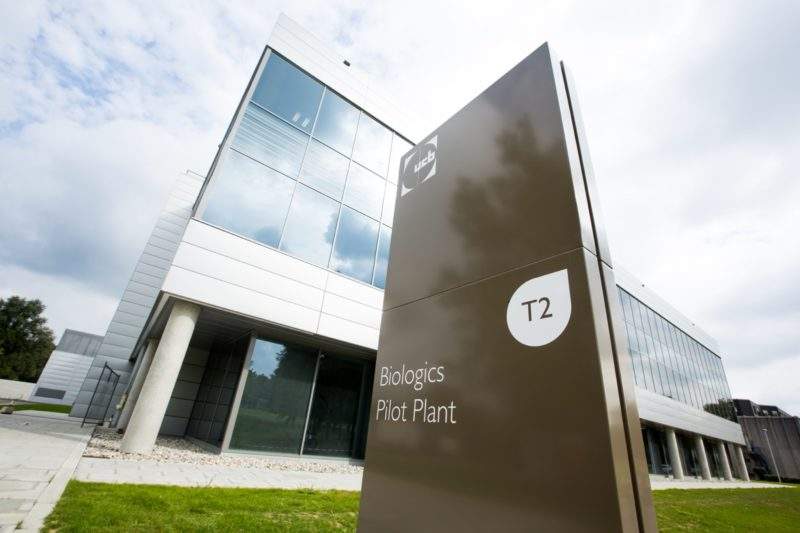On 28 May, the FDA approved the extension of the label of UCB’s tumor necrosis factor (TNF) inhibitor Cimzia (certolizumab pegol) for use in adults with moderate-to-severe plaque psoriasis.
This approval marks UCB’s entrance into the immuno-dermatology market, a competitive field in which Cimzia could find a niche space. However, there are a number of safe and efficacious biologics in the psoriasis market, and Cimzia could struggle if it is not well received by prescribing physicians and dermatologists.
The FDA approval of Cimzia is based on data from three Phase III clinical studies: CIMPASI-1, CIMPASI-2, and CIMPACT. Over 1,000 patients were enrolled in the trials and approximately one third of the patients had prior biological therapy. The Psoriasis Area and Severity Index (PASI 75 and 90) was measured to assess the percentage of patients who achieved 75% or 90% disease improvement.
In the CIMPASI-1 and CIMPASI-2 studies, the percentage of patients who received a 400mg dose of Cimzia every two weeks had a PASI 75 score of 75% and 82% at 16 weeks in CIMPASI-1 and CIMPASI-2, respectively, compared with 7% and 13% for patients receiving placebo. Additionally, for the 200mg dose arm of both studies, 36% and 50% of patients achieved a PASI 75 score compared with 0% and 5% for patients receiving the placebo, respectively. In the CIMPACT study, the percentages of patients who received 400mg and 200mg of Cimzia every two weeks and achieved a PASI 75 at 16 weeks were 69% and 75%, respectively, compared with 4% of patients who received the placebo. Furthermore, the percentages of patients who achieved a PASI 90 at week 16 were 49% and 40% among the patients who received the 400mg and 200mg doses of Cimzia.
Although Cimzia marks the fourth TNF inhibitor to be approved for the treatment of psoriasis, Cimzia is the first Fc-free biologic to be approved by the FDA. GlobalData anticipates Cimzia will face strong competition from the widely used branded anti-TNFs, including AbbVie’s Humira, Amgen and Pfizer’s Enbrel, and Johnson and Johnson’s Remicade, not to mention their respective biosimilars.
More recently, IL-12/23 inhibitors and IL-17 inhibitors have been approved for use in moderate-to-severe psoriasis patients, marking a challenging market for UCB to compete in. That being said, GlobalData believes that Cimzia could be a safe and attractive therapeutic option, as its efficacy and safety have been investigated in pregnant and breastfeeding women. This meets a significant unmet need in psoriasis patients, as there are limited safe and efficacious drugs available for this patient population.

US Tariffs are shifting - will you react or anticipate?
Don’t let policy changes catch you off guard. Stay proactive with real-time data and expert analysis.
By GlobalDataIn addition, IL-17 and IL-23 inhibitors have not been tested for safety and efficacy in pregnant and breastfeeding women. With this in mind, Cimzia has the potential to capture a share of patients who are not well suited to currently available biologics. However, UCB will need to capture a share of psoriasis patients that are pregnant and breastfeeding in order to be successful. Overall, with the approval of Cimzia being extended for use in moderate-to-severe psoriasis patients, UCB has shown that it has the potential to compete in the psoriasis market.
Related Reports
GlobalData (2016). PharmaPoint: Psoriasis – Global Drug Forecast and Market Analysis to 2024, April 2016, GDHC119PIDR
GlobalData (2016). PharmaPoint: Psoriatic Arthritis – Global Drug Forecast and Market Analysis to 2025, November 2016, GDHC140PIDR
Upcoming Reports
GlobalData (2018). Psoriasis – Global Drug Forecast and Market Analysis to 2027, to be published
For more insight and data, visit the GlobalData Report Store – Pharmaceutical Technology is part of GlobalData Plc.




